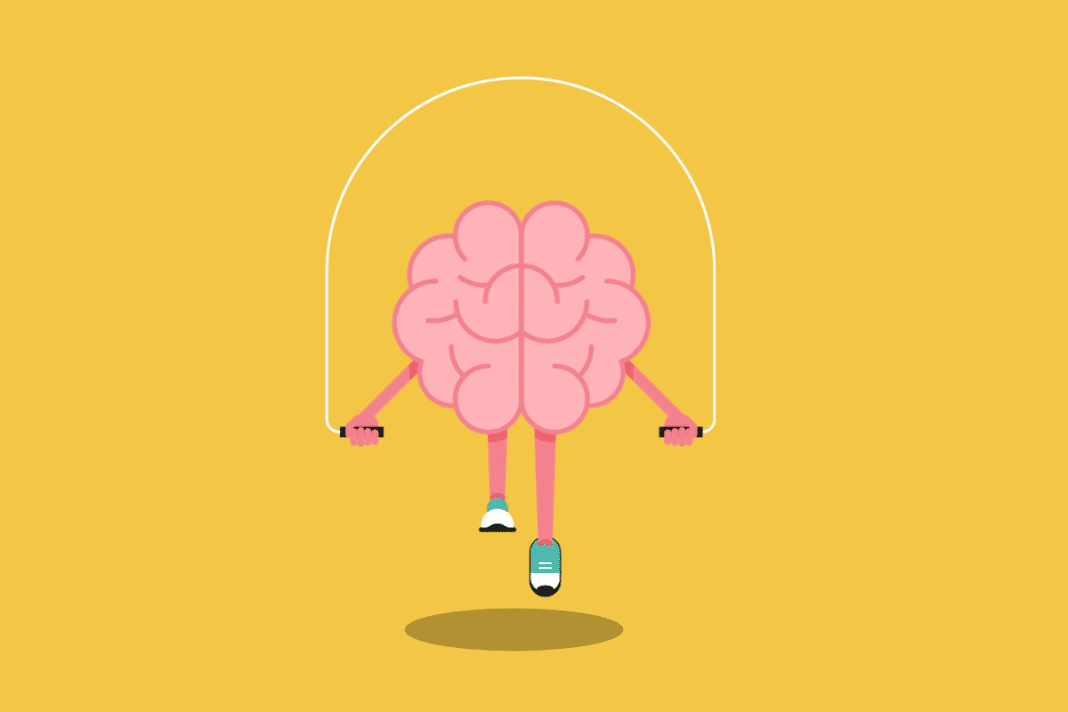Humans have a “use it or lose it” brain; optimizing its use plays an important role when it comes to maintaining a healthy mind. The brain is an amazing, three-pound organ that is involved in every major and minor decision we make. For that reason, it needs to be taken care of… and it needs to be taken care of well.
While it’s beneficial to upkeep a healthy and strong physique, a trained brain is a crucial portion of our bodies’ maintenance. Our brains need regular training to effectively conserve everyday functionality, focus, and memory.
The best part is that training your brain is not demanding work! You do not necessarily have to lift heavy weights, run for hours on end, or do one hundred push-ups a day for a brain-training program. Whether thirteen or thirty, people of all ages can easily exercise their brains, leading to a more blissful life by incorporating a few simple and fun habits into their day-to-day routines.
So, what are the simple and fun habits that I’m talking about? Let’s take a look.
1. Read every single day
Reading might seem less fun when compared with binging your favorite Netflix web series. But do you even know how beneficial reading can be for your brain?
Not only can reading every day assist you with your language skills, but it can also bump up your attention span. What’s more, reading will keep you mentally stimulated, which reduces the risks of medical conditions in later life, such as dementia and Alzheimer’s. Yep! Those are only a few benefits of reading and what it can do for you.
Additionally, reading does not only entail deciphering words printed on pages, but it’s actually also an intense neural workout. All the disparate parts of your brain are at work while you are reading. As a matter of fact, it is even more demanding than processing images and speech.
That said, you should get reading right away!
2. Maintain a to-do list
“Oh, I forgot to go grab the groceries today!” “Oh no, I had a dentist’s appointment today, but I completely forgot about it.”
We’ve all been there, done that. An easy solution to never forget what’s important to you is to keep a to-do list.
Apart from helping you remember your daily tasks, however, maintaining a to-do list will also help to train your brain. While creating your to-do list, you are already working on memorizing the various things that you have to do in your day, and writing them down in the form of a list makes your brain work more strenuously. Such checklists help the brain become more goal-oriented and productive.
While your brain trains from this little habit, it is important to note that you may also experience the blissful feeling of accomplishment after checking off each item on your list.
3. Exercise on a weekly basis
Putting on your sneakers and hitting the gym will not only give you a “fit as a fiddle” body, but it can also alert your brain.
Workouts can have a positive impact on your brain, making it function better. For example, heart rates are increased while you work out, which pumps extra oxygen to the brain. Not to mention, new neural connections are also put in place. Both of these phenomena work to stimulate the brain’s plasticity.
Aerobic exercise in particular helps the brain function better as it improves the health of any damaged brain cells.
4. Write down ideas
Penciling down your ideas is another exercise that will help you train your brain.
Rather than letting things float freely inside your head, you should jot them down. There is only so much that our memories can hold; therefore, it’s important to outsource your memory to get things done. This will also help your brain stay productive all day long.
Dumping all your thoughts onto paper also conserves your mental energy, which can then be expended in trying not to forget things. Besides, paper and pencil are some of the best concentration tools as they help you keep your focus on what you are writing. Lastly, writing down your ideas can also keep your thoughts organized.
5. Learn something new
While expanding your knowledge base can help you become more interesting as a person, learning a new skill also improves the brain’s health.
Finding and practicing new skills helps your brain stay active and stimulated. Learning something new requires more use of our brains, and the more we use it, the better it performs.
If you’re trying to learn a new instrument, for example, your hand-eye coordination skill sharpens as you’re translating written sheet music into melodious notes.
6. Take time to meditate
Meditation is considered the best brain training technique as it improves awareness and brain functioning.
After deeply analyzing functional magnetic resonance images (fMRIs), scientists have revealed that there are tangible changes in our brains when we begin to meditate. When we practice meditation, our brains stop processing the information as actively as they normally would. This has a lasting effect and improves our focus outside of meditation.
Along with improving memory, meditation also helps us loosen the connections of particular neural pathways, which lessens anxiety.
7. Listen to or play music
Much like Willy Wonka’s love for chocolates, your brain has a profound love for music. Turning on some of your favorite music will not only make you tap your feet and snap your fingers, but it can also help you increase your creative brainpower.
A 2017 study, conducted by Plus One, revealed that happy and upbeat music generates innovative and ingenious solutions, which is not always possible in silence. In addition to merely listening to music, actually playing music also influences the way our brains work and makes them sharper.
Playing an instrument can improve your memory along with protecting your brain from the ravages of old age. It can also polish up your brain’s problem-solving abilities.
8. Eat right
There is no doubt that you’ve heard the common expression, “You are what you eat.” When it comes to brain health, diet plays an important role.
Green, leafy vegetables, such as kale, spinach, and broccoli, all help improve cognitive functions as they are rich in brain-healthy nutrients like vitamin K, lutein, folate, and beta carotene. Fatty fish and other rich sources of omega-3 acids are also helpful, especially for those suffering from Alzheimer’s disease.
Dark chocolate is another must-have because it gives the mind a nice boost. When we consume dark chocolate, our brain produces dopamine, which is a neurotransmitter that improves our overall satisfaction, learning skills, and memory. Dark chocolate contains flavonols and antioxidants, which both do wonders in improving the overall functioning of the brain.
9. Practice gratitude
Practicing gratitude can be a very useful method for training your mind to think positively. Positive thinking, in turn, fosters positive results and cognitive restructuring.
Saying “thank you” more frequently can also impact your brain and train it to consistently be happier, no matter how difficult circumstances become. A happier brain is a healthier brain. Keeping a gratitude journal can be a helpful way to lessen stress and build emotional awareness.
No, we are not just blabbering; even science backs this! Expressing gratitude reduces stress by regulating stress hormones. Moreover, this little deed also enhances the production of dopamine and serotonin. Both of these neurotransmitters are responsible for happiness.
10. Write with your hand
If you’re hoping to train your brain and make it stronger, then you should put your laptop aside and instead, grab a pen and paper.
Taking notes on mobile devices like iPads and smartphones might be the newest trend, but the old-school method of writing information down on paper has positive impacts on the brain. Hand-writing increases neural activity in particular sections of the brain.
Writing acts like meditation, triggering the reticular activating system, which lets your brain know that it’s time to pay attention. Moreover, the hand movements that are used while writing activate the large regions of the brain, which are responsible for memory, thinking, healing, and language.
11. Learn a new language
Learning a new language is a substantial brain strengthener and has various cognitive benefits.
Bilingualism improves a person’s memory as they are required to learn a plethora of new terms as well as their meanings. This is an evident workout for the mind’s memory muscles. Apart from this, learning a new language improves visual-spatial skills and increases creativity.
Being fluent in two different languages makes for an easy switch between the two whenever necessary, which ultimately trains your brain to become better at multitasking. It also delays the advent of age-related mental decline.
Conclusion
If you stick to even a few of these techniques for sharpening your mind and make them habitual, you will certainly see an improvement in your mental health. You will also be able to protect yourself from the mental decline that is inevitable when one ages.



